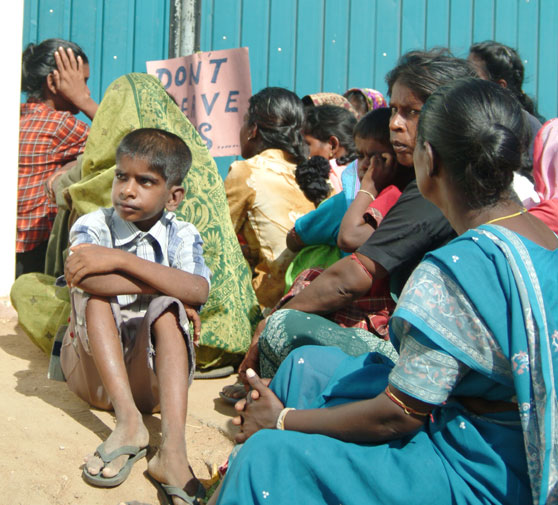United Nations Secretary General Ban Ki Moon admitted the global body made “big mistakes” and could have saved “many more human lives” during the final phase of the island's bloody armed conflict in 2009, where tens of thousands of Tamil civilians were massacred at the hands of Sri Lankan security forces.
The UN engaged in “self-scrutiny” in the aftermath of the conflict said Mr Ban, to an audience in Colombo on Friday. “Reports by expert, independent panels that I appointed found serious systemic problems on the part of Member States and Secretariat alike,” he said. A 2013 internal report found that there had been "a grave failure of the UN".
“Sri Lanka has taught us many important lessons,” he continued. “We have learned. The United Nations, I am not talking about you."
"You also made serious problems among your people," pointed out Mr Ban. "But United Nations… particularly during the critically important last several months, we made big mistakes. We learned very hard lessons.”
The UN chief reiterated that the body had committed “serious mistakes” in its conduct, bemaoning the massive loss of life in the final few months of the fighting. UN officials and other international non-government organisations, abandoned the final scenes of the conflict after the Sri Lankan government stated it could not guarantee their safety. In the months that followed, officials failed to speak out against massive human rights violations, despite having full knowledge that abuses were actively taking place.
“Had we been more active and engaged, we could have saved much more... many more human lives,” said Mr Ban.
 |
| Displaced Tamils in September 2008 held a sit in outside the UN office in Kilinochchi, as UN officials left the conflict zone ahead of the Sri Lankan military offensive. The placard in the back reads "Don't leave us". |
The Secretary-General continued to compare the situation in Sri Lanka to that of the 1994 Rwandan genocide, and the 1995 genocide in Srebrenica.
“Something happened during my time as Secretary-General,” he said. “Something more serious and terrible has happened in the past. In 1994 in Rwanda there was a massacre more than 1 million people were massacred. United Nations felt responsible for that. Of course it wasn’t their war and massacres, but United Nations was not able to activate on it.”
“We committed that should never occur – never again. We repeated never again, never again.”
However, massacres happened “just one year after in Srebrenica,” said the Secretary-General. “Again many people were massacred when they were not fully protected by United Nations peacekeeping operations. So we repeated again never again.”
“Now how many times should we repeat, never never again,” he questioned. “We did again in Sri Lanka.”
“We have to do much more, not to repeat that kind of thing in Sri Lanka, Yemen and elsewhere,” concluded Mr Ban. “So we are fully fully committed to put human rights upfront.”
Speaking at a press conference shortly after his speech, the Secretary General said the United Nations “reviewed our involvement in the terrible events of that time and continue to take steps to ensure that human rights are at the centre of all our decision-making”.
The Secretary-General’s visit to the island, his first since shortly after the end of the fighting in 2009, has been met with angry protests from Sinhala nationalists. Tamils in the North-East though, repeated demands for international justice, with hundreds of Tamil victims taking to the streets of Jaffna today, as Mr Ban met with Tamil leaders.
“I also urge you to speed up the return of land so that the remaining communities of displaced people can return home,” said Mr Ban, a key demand voiced by Tamils in Jaffna on Friday. “In parallel, the size of the military force in the North and East could be reduced, helping to build trust and reduce tensions.”
“Victims cannot wait forever,” Mr Ban told the media in Colombo. “They deserve to have their voices heard. They deserve credible, transparent and solid transitional justice mechanisms.”
“In all my meetings with the senior government and high military leadership, I stressed that it is important to seize the opportunity to provide all of your people with truth, justice, security and prosperity,” he concluded.
We need your support
Sri Lanka is one of the most dangerous places in the world to be a journalist. Tamil journalists are particularly at threat, with at least 41 media workers known to have been killed by the Sri Lankan state or its paramilitaries during and after the armed conflict.
Despite the risks, our team on the ground remain committed to providing detailed and accurate reporting of developments in the Tamil homeland, across the island and around the world, as well as providing expert analysis and insight from the Tamil point of view
We need your support in keeping our journalism going. Support our work today.
For more ways to donate visit https://donate.tamilguardian.com.

